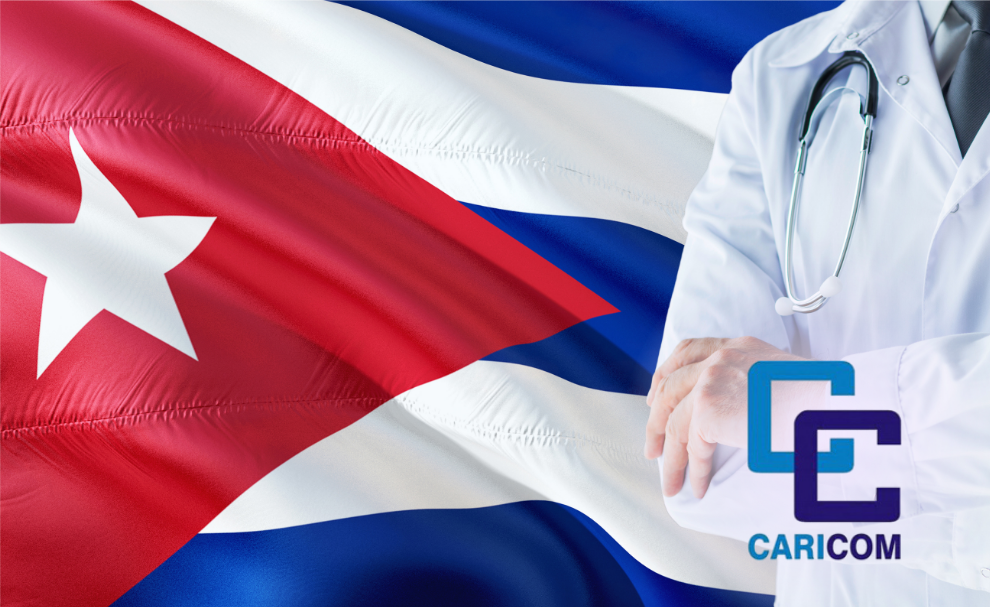17 March 2025
The US Secretary of State, Marco Rubio, is expected to visit the Caribbean before the end of March to meet with CARICOM governments to discuss among other matters the decision by the Trump Administration to revoke the visas of Caribbean facilitating Cuba’s medical missions to the region and elsewhere. (Background Cuba Briefing 3 March 2025)
The announcement follows a meeting on 9 March in Washington between Caribbean Foreign Ministers and the US Special Envoy for Latin America and the Caribbean, Mauricio Claver-Carone, during which the issue was discussed.
At the meeting, Washington promoted the idea that Cuban medical personnel working overseas should be able to earn and sell their services in a manner that is independent from the Cuban state and have the same workplace rights as most regional workers do under the International Labour Organisation’s multilaterally agreed conventions. It was also stressed that the new US sanctions relating to Cuba applied to nations in many other parts of the world including in Africa, the Gulf, and Europe, that are receiving Cuban medical brigades. The US also sought to have CARICOM governments undertake what were described as fair financial negotiations with Cuba.
In response, Caribbean Foreign ministers defended the Cuban health programme and the benefits it offered and voiced concern about the impact of US policies and the embargo on the Cuban people.
Expressing support for Cuba’s medical programmes two days later, Grenada’s Foreign Affairs Minister, Joseph Andall, was quoted as saying on 11 March, during the island’s budget debate, that the island not only has a “legal, moral and ethical” obligation to stand by the people of Cuba, but that it should avoid being opportunistic or transactional as it pertains to the relations between the two countries”.
“Cuba continues to be a trustworthy friend and partner not only of Grenada, not only of the Caribbean but of people the world over. When the COVID-19 pandemic broke out, Cuban doctors went as far as Italy to provide services, I did not hear anybody talk about human trafficking and things like that,” Andall told Parliament.
Highlights in this issue:
- Tourism expert says sector’s recovery unlikely before 2030
- Cuba open to accepting returned migrants but within terms of US migration accords
- Judicial authorities say all prisoners under agreement with Vatican now released
- Prime Minister calls for more controls and stockpiling to improve food supply
- Meliá International say Cuba related revenues and occupancy fell in 2024
The meeting in Washington also discussed issues relating to regional security, the situation in Haiti, regional economic stability and development, energy, Venezuela, climate change, and the abolition of USAID. It involved ministers and diplomats from Barbados, the Bahamas, Belize, Dominica, Guyana, Haiti, Jamaica. St Kitts, St Lucia, St Vincent, Suriname, and Trinidad.
The exchanges in Washington on the medical assistance Cuba provides to most nations in CARICOM came days after a series of direct, sometimes blunt statements by several CARICOM heads of Government stressing the importance to their health systems of Cuba’s medical programmes and its broader regional support, with some CARICOM Prime Ministers indicating they would be prepared to forgo a US visa rather than end the Cuban programmes.
Among those doing so were the Prime Minister of Antigua, Gaston Browne, the Prime Minister of St Vincent, Ralph Gonsalves, the Prime Minister of Barbados, Mia Mottley, and the soon to retire Prime Minister of Trinidad, Keith Rowley. Speaking at an event to inaugurate new facilities at the Port-of-Spain General Hospital, Rowley noted to applause that he had just returned from California, saying “and if I never go back there again in my life, I will ensure that the sovereignty of Trinidad and Tobago is known to its people and respected by all.” For his part Gonsalves, emphasising the vital dialysis treatments provided to citizens by Cuban doctors, said “I will prefer to lose my US visa than to have 60 poor and working people die.”
Addressing Barbados’ Parliament, Mottley said that she too was prepared to have her US visa revoked, and urged all CARICOM nations to explain “what the Cubans have been able to do for us” in relation to its medical support programmes.
Also commenting, Grenada’s Prime Minister, Dickon Mitchell, emphasised the historical nature of Cuba and the Caribbean’s support for each other, before going on to say: “We have a legitimate partnership with the government and people of Cuba who have over several decades provided support to the people of Grenada in the medical field.” In doing so he stressed the challenges the island faces in securing specialist doctors, noting, “We will continue to support and defend the partnership.”
St Kitts Minister of Foreign Affairs, Denzil Douglas observed, “Our relationship with Cuba has always been one of mutual respect and we have received great support from the island in important areas such as human resource training, scholarships, and medical services. It is a relationship that has tremendously benefited our people,” he said.
For the Caribbean, arrangements for healthcare with Cuba remain crucial to supporting the limited numbers of local medical professionals they have. Havana’s medical programmes in the region variously provides specialist consultants, doctors, nurses, biomedical engineers, and technicians in ways and in locations that no other nation globally is able or willing to provide. CARICOM nations are also acutely aware Cuba’s support during the COVID pandemic and its help in responding to disasters.
The importance of the issue, its ethical dimensions, and its implications for Caribbean sovereignty, mean that it will likely have to be resolved at a Heads of Government level. CARICOM is hoping at some stage soon, to be able to meet with President Trump to discuss the Caribbean concerns about Washington’s much changed regional priorities.
17 March 2025, Issue 1271
The Caribbean Council is able to provide further detail about all of the stories in Cuba Briefing. If you would like a more detailed insight into any of the content of today’s issue, please get in touch.

